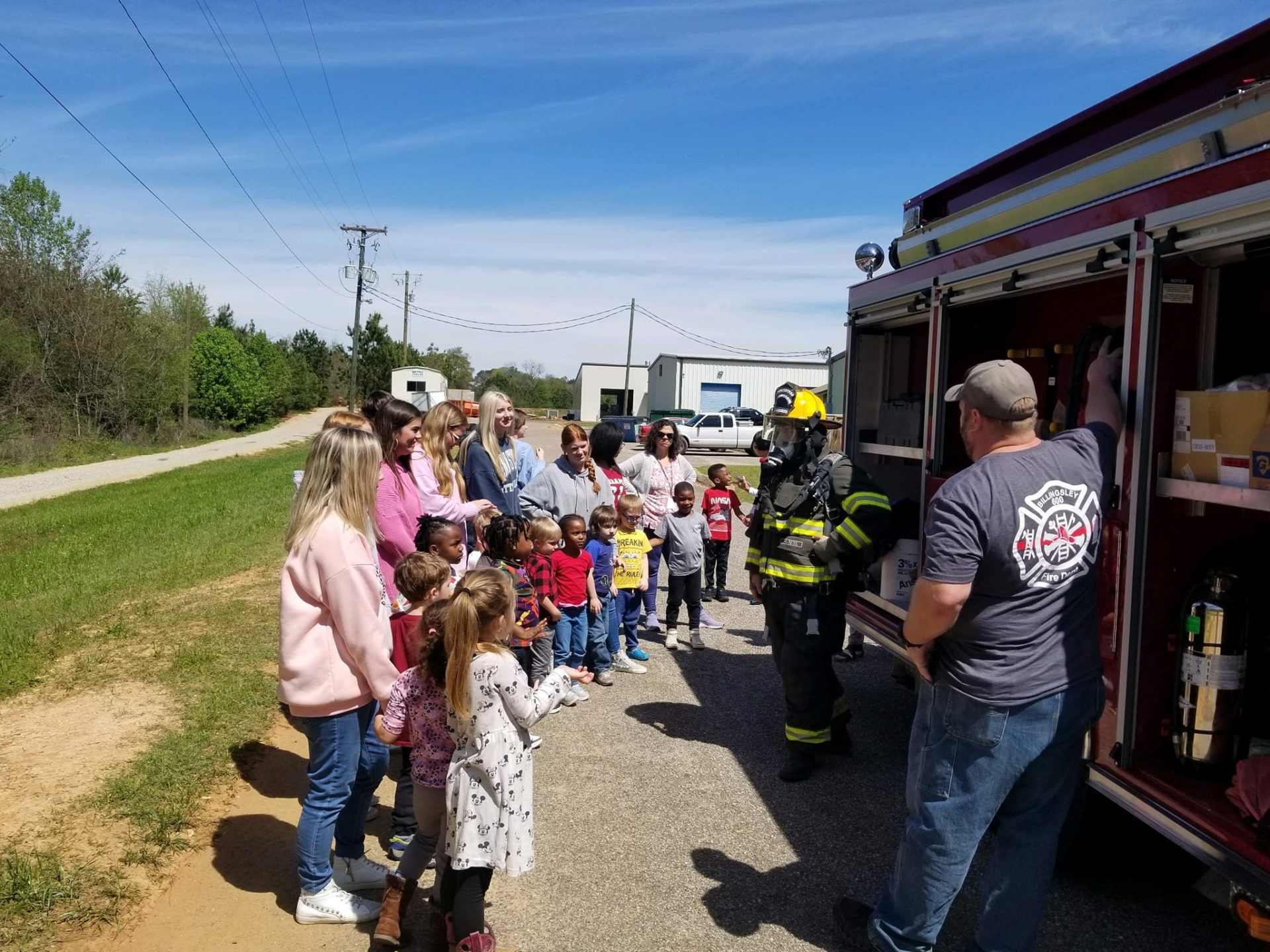Water is vital not just for firefighting but also for the overall safety and well-being of your community. Understanding how water hauling operations support volunteer fire departments can help you appreciate the role they play in enhancing local services. These operations not only provide necessary water supply during emergencies but also foster collaboration among community members and contribute to better resource management. By exploring the impact of water hauling, you will gain insights into how your volunteer fire department can bolster community resilience and readiness.
The Role of Volunteer Fire Departments in Community Safety
While volunteer fire departments serve as the backbone of community safety, their operations go beyond firefighting. These dedicated teams not only respond to fires but also engage in fire prevention education and emergency responses, ensuring a safer environment for you and your neighbors. Their commitment to community service enhances local resilience and fosters a sense of security within the neighborhood, making them indispensable in safeguarding lives and property.
Importance of Quick Response Times
Beside the critical services they provide, volunteer fire departments excel in ensuring quick response times. When emergencies arise, every second counts, and having a local, dependable team ready to act expedites the response, ultimately reducing potential damage and saving lives. Your community benefits significantly from their swift actions, reinforcing the need for ongoing support and resources for these heroes.
Community Engagement and Trust
Volunteer fire departments rely on strong community engagement and trust to perform their duties effectively. Volunteer firefighters often participate in local events, open houses, and educational programs, creating opportunities for you to interact with them and learn about fire safety. This connection fosters a mutual trust that is imperative for effective emergency response.
But building community engagement goes beyond simple interactions; it involves empowering you to take part in safety initiatives. By participating in fire prevention programs and local meetings, you can establish a partnership with your volunteer fire department. This trust and collaboration lead to improved communication, understanding the value of their services, and ensuring that your fire department remains a pillar of strength and support within the community.
Overview of Water Hauling Operations
You may be surprised to learn that water hauling operations play a significant role in supporting volunteer fire departments. These operations are imperative for transporting water to areas lacking sufficient hydrants, enabling rapid firefighting efforts and associated community services. Ensuring that local fire brigades have adequate water supply can significantly affect the management of emergencies in rural environments.
Definition and Purpose
For volunteer fire departments, water hauling operations serve the primary purpose of delivering imperative water supplies during emergencies. This can include firefighting, water rescues, and providing potable water after disasters. These operations assist in maintaining community safety and foster a quicker response during critical situations.
Types of Water Hauling Vehicles and Equipment
With various vehicles and equipment available, water hauling can be efficiently executed. Common types include:
| Vehicle Type | Purpose |
| Water Tankers | Transport large volumes of water |
| Fire Trucks | Serve as both transport and firefighting tools |
| Utility Crews | Provide smaller-scale water delivery |
| Portable Water Tanks | Store and dispense water in remote areas |
| Pump Units | Facilitate water transfer from larger sources |
Knowing the various types of vehicles utilized in water hauling operations will help you appreciate their role in effective firefighting logistics. Each piece of equipment is designed to ensure that volunteer fire departments can access water when needed, ultimately enhancing community safety.
Operations rely heavily on proper equipment to ensure that water is efficiently and effectively delivered. The specialized tools include:
| Equipment | Function |
| Water Pumps | Transfer water quickly |
| Hoses | Connect source to tanks or trucks |
| Adapters | Mix and match different equipment |
| Flow Meters | Monitor water delivery rates |
| Portable Generators | Power equipment in remote areas |
Knowing the range of equipment used in water hauling operations will enhance your understanding of how volunteer fire departments can respond more effectively in emergencies. Each item plays a specific role in helping ensure that adequate resources are available when every second counts.
Enhancing Firefighting Capabilities Through Water Hauling
Now, water hauling operations significantly bolster your firefighting capabilities, providing the necessary resources to combat blazes effectively. By delivering water supplies swiftly and efficiently, these operations ensure that firefighters can concentrate on extinguishing fires rather than worrying about water access. They enhance your department’s ability to respond to emergencies with the right amount of water on hand, ultimately saving lives and protecting property.
Access to Remote Areas
Any fire department serving rural or remote areas knows that access to firefighting resources can be a challenge. Water hauling operations bridge this gap by transporting water directly to these locations, ensuring you have reliable support when needed most. This capability means you can tackle fires in regions that may be difficult to reach, effectively shortening the distance between the water source and the fire.
Reduced Response Times in Emergencies
For every second counts during an emergency, and water hauling can dramatically cut down response times. Having a dedicated water supply readily available allows you to engage fires immediately, enhancing your operational effectiveness. This prompt response contributes to mitigating damage and controlling fire spread.
This enhanced capacity to provide immediate resources provides peace of mind not only for your firefighters but also for the community you serve. By reducing response times through efficient water delivery, you ensure that fires are tackled swiftly, minimizing potential destruction. Water hauling operations enable your team to be consistently prepared, effectively increasing deterrence against fire incidents and safeguarding your community’s safety and well-being.
Building Community Resilience
Not only do water hauling operations provide immediate support during emergencies, but they also play a key role in building long-term community resilience. By ensuring a steady supply of water, these operations help your community bounce back from disasters such as wildfires or droughts, enhancing overall preparedness and response capabilities.
Training Opportunities for Volunteers
Among the significant benefits of water hauling operations are the training opportunities they present for volunteers. Engaging in these activities equips you with vital skills related to water management, emergency response, and logistics, making you a more effective member of your local fire department.
Public Awareness and Education Programs
Against a backdrop of increasing environmental challenges, education programs related to water hauling aid in raising public awareness about water conservation and emergency preparedness. These initiatives inform you about the importance of sustainable practices and how to respond during emergencies, ultimately leading to a more knowledgeable and engaged community.
Also, these public awareness and education programs provide tangible resources and workshops that engage community members of all ages. By participating in these initiatives, you can learn about water storage, emergency plans, and ongoing local challenges. Not only do these programs empower you with information, but they also create a spirit of cooperation among community members, ultimately fostering a more resilient and informed society.
Collaborations and Partnerships
Despite the challenges that come with water hauling operations, effective collaborations and partnerships play a vital role in enhancing the services that volunteer fire departments can provide to your community. By working together with local agencies, businesses, and organizations, you can optimize resources, share knowledge, and ensure that your firefighting efforts are more efficient and impactful.
Working with Local Governments
Below, you’ll find that partnering with local governments is key to achieving sustainable water hauling operations. These partnerships not only provide the necessary support in terms of permits and resources but also facilitate coordination during emergencies, enhancing your fire department’s ability to respond effectively in critical situations.
Involvement of Community Organizations
Local community organizations can significantly contribute to the strength of your water hauling initiatives. They offer additional resources, volunteers, and financial support that can bridge gaps in service delivery and help bolster your firefighting capabilities.
The involvement of community organizations elevates your water hauling efforts by creating a network of support that extends beyond the fire department. By collaborating with local groups, you not only share resources but also engage community members, fostering a sense of ownership and responsibility towards fire safety. This collective approach enhances your ability to respond to emergencies swiftly and effectively, ensuring that every stakeholder is invested in the safety and well-being of the community.
Financial Aspects of Water Hauling Operations
All fire departments face financial challenges, but water hauling operations can help alleviate some of these pressures. By partnering with local organizations or government agencies, volunteer fire departments can access necessary funding and resources to maintain their water hauling services. Additionally, maintaining a clear budget that encompasses operation costs can ensure the sustainability of these services, allowing fire departments to effectively respond to emergencies without compromising their financial stability.
Funding Sources and Budgeting
Around the country, fire departments often seek diverse funding sources to support their water hauling operations. Grants, local government funding, and community fundraising events play key roles in maintaining a sustainable budget. By exploring various avenues for financial support, you can effectively allocate resources for water hauling, ensuring that your department remains equipped to handle emergencies while minimizing the impact on your primary budget.
Cost-Effectiveness of Water Hauling Services
By implementing water hauling services, your volunteer fire department can realize significant cost savings. These services can reduce dependence on expensive water supply systems and allow you to utilize existing resources more efficiently. Utilizing local water sources not only cuts down transportation and infrastructure costs but also ensures your department can respond swiftly to emergencies—ultimately enhancing the service you provide to your community.
Operations that focus on efficient water hauling can lead to minimized operational costs, benefiting both the fire department and the community. By optimizing water delivery systems and establishing strong partnerships with local water suppliers, you can significantly decrease expenses associated with traditional water sourcing. This approach not only ensures that your department is financially sound but also enhances your ability to provide timely responses in emergencies, creating a stronger, more dependable service for your community.
To wrap up
The integration of water hauling operations significantly enhances your volunteer fire department’s ability to respond effectively during emergencies. By ensuring an adequate water supply in remote areas, you can improve fire suppression efforts and community safety. Additionally, these operations foster stronger community ties as you collaborate with local organizations and residents, ultimately promoting quicker response times and more dependable services. As a result, your volunteer fire department can better serve and protect your community, making it a safer place for everyone.


